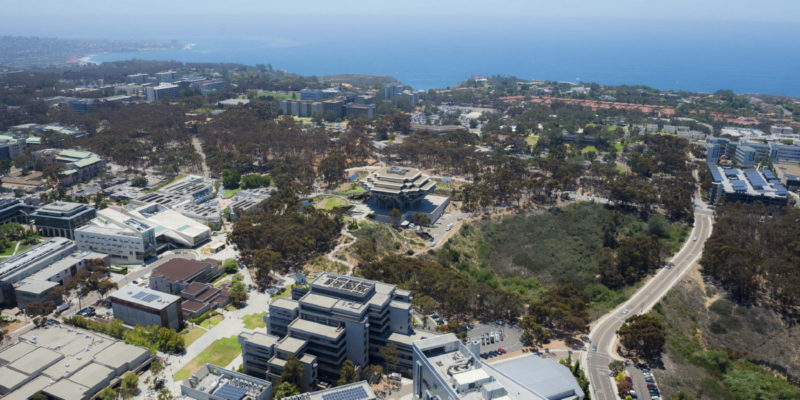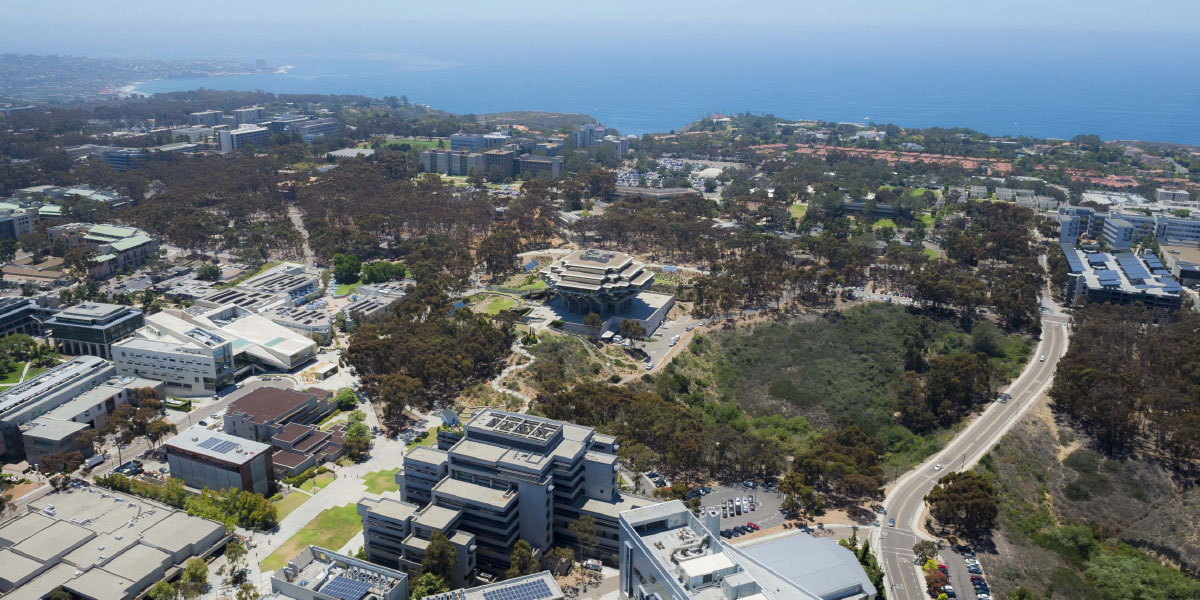The varied responsibilities of university business officers, fund managers, or administrative assistants often include the role of event and entertainment planner for their departments. Although not always the most glamorous of tasks, successfully executing an event can solidify an institution’s reputation or secure a donation. Correctly completing the transactions related to these events can be a nuanced, oftentimes policy-driven, moving target. The University of California San Diego (UC San Diego) has not been immune to complicating these processes, offering myriad, overlapping solutions that, in turn, can lead to confusion among campus employees as well as suppliers.
In FY15 alone, UC San Diego spent approximately $40.6 million on events and processed more than 45,000 event-related transactions. Those transactions were handled by the Integrated Procure-to-Pay Solutions organization within the Business and Financial Services department. IPPS oversees everything, from reviewing and negotiating supplier contracts to managing and processing supplier invoices and entertainment expense reimbursement.
Over the years, campus clients and suppliers provided IPPS with feedback on the difficulties they faced—such as having too many systems to choose from and not knowing where to start when planning an event.
UC San Diego launched in the fall of 2015 a strategic organizational initiative, Re:Event, with the objective of reinventing some of the more critical event-related transaction processes, such as catering and event reimbursements. It was clear that the existing tools had been built around policy, making them cumbersome to understand and use. Instead, the tools should have been built first, and the policy incorporated second. As a result, we knew that Re:Event would not succeed if conceptualized in a vacuum; in addition to internal staff feedback, campus client and supplier input would be critical.
Comments From Clients
First, IPPS formed a team to manage Re:Event. It included three core members, 14 internal subject matter experts, support from IT, and several client focus groups (including Special Events and Protocol, Alumni, Health Sciences Advancement, Student Life, and University Communications). The core team immediately began gathering feedback from IPPS staff involved in event-related transactions.
Next, the team reached out to the wider organization via IdeaWave, a campuswide crowdsourcing platform. IdeaWave features a rotation of general hot-button issues across the campus, allowing the entire community to submit and build upon ideas, collaborate with one another, and vote on suggestions.
The IdeaWave campaign kicked off in early 2016, with a campuswide call for ways to improve the event planning and reconciliation process. Contributions came from a variety of voices and multiple areas across campus. The resulting comments, aligned with the internal staff feedback, confirmed what the planning team had suspected would be the first area to tackle: catering.
In particular, event planners wanted IPPS to reduce the amount of time needed for payment to be issued and streamline the applications available. Some problems stemmed from the catering request process itself, which was being managed in two separate systems. Catering requests were being issued through the eProcurement application, allowing procurement to issue a contract to the caterer. To ensure compliance with the University of California’s (UC) accountable plan and policies (BUS 79), however, payment reconciliation for catering requests was managed in a completely separate, homegrown application that processed noncontracted payment request reimbursements for meetings, programmatic activities, and entertainment expenses.
Simplifying Workflow, Catering Process
Based on the feedback, the Re:Event team held several rounds of campus focus groups and meetings with IPPS subject matter experts. They prepared and shared design concepts, each time building upon the suggestions and questions from previous meetings. In late 2016, the team introduced the entire campus to a new, innovative catering process that efficiently brings the entire catering request and payment process into the eProcurement solution, eliminating several of the original steps and the need to use a separate application for payment.
The team had to account for and develop a solution to adhere to UC and IRS compliance review and approval. It also created new entertainment approval roles for the eProcurement application, including standard and special entertainment approvers, and created a workflow to route invoices for review. This allowed the reconciling of payment to occur in the eProcurement application, without compromising the integrity of the transaction.
To help mitigate risk to the university, the team also built into the solution automatic notifications to the police department whenever alcohol is served at an event. Following the new solution’s launch, the Re:Event team held open houses for campus and IPPS personnel, inviting additional design suggestions and providing the opportunity to place real orders through the new solution to ensure that it worked for their individual needs.

Making the List
From a contractual standpoint, the Re:Event team worked with professional buyers to define criteria and post a request for proposal for catering services. Suppliers who participated in the RFP process and met the UC San Diego minimum requirements received a contract. The minimum requirements include maintaining up-to-date insurance and health certificates on file, agreeing to electronic invoicing and UC San Diego’s preferred payments options, and accepting the university’s terms and conditions.
The resulting pre-qualified caterers now offer negotiated discounts for providing their services to the campus. Additionally, capitalizing on services provided by the UC insurance tracking provider—paired with functionality within the eProcurement application—eliminated the need to stop requisitions for suppliers with valid and up-to-date insurance. Campus departments maintain the flexibility to choose the caterer that best meets their needs, but they now have options vetted by IPPS, which translates into more discounts and a shorter approval process. And this list of caterers is ever-growing.
Savings, Other Benefits
The new process was not only well-received on campus, but also won a 2017 NACUBO Innovation Award. Based on the combined projected time savings, the revenue calculated on the payment terms, and the catering discounts offered to campus, it is estimated that the university will receive a minimum benefit of $270,000 annually.
The second phase of Re:Event, rolled out during the spring of 2017, integrated two homegrown expense management systems into a singular system for processing reimbursements. These applications had coexisted with similar functionality, creating confusion for campus clients who had to decipher when to use one over the other. The integration streamlined and consolidated the non-contracted payment request process into the more modern, intuitive, and flexible application.
The Re:Event initiative required an innovative and crossfunctional team that operated as a cohesive unit. A key component to the initiative’s success was the integrated procure-to-pay solution’s organizational structure. Before 2014, procurement, payables and payment, travel, reimbursements, and logistics operated separately. In 2014, the entire procure-to-pay operation was integrated and placed under a single leadership structure. This has allowed for more innovative collaboration and a culture of open communication.
SUBMITTED BY Pierre Ouillet, vice chancellor and chief financial officer; and Ted Johnson, associate controller of integrated supply chain and chief procurement officer, University of California San Diego



